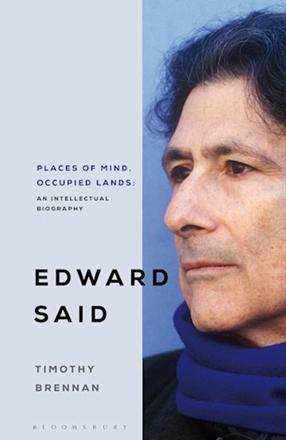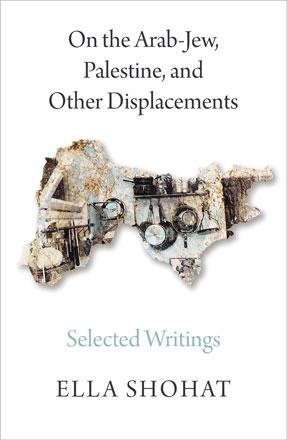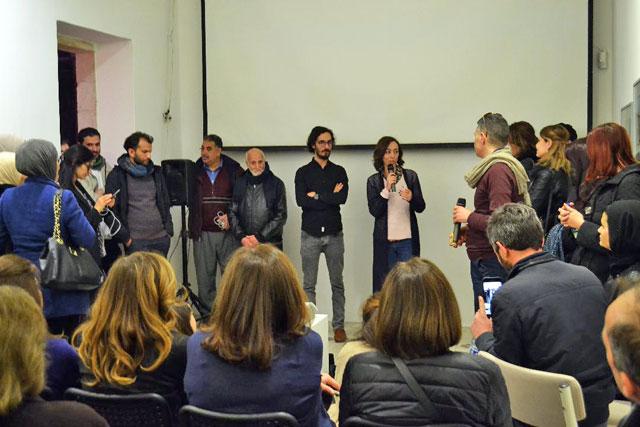You are here
A transformative thinker
By Sally Bland - Oct 10,2021 - Last updated at Oct 10,2021

Places of Mind: A Life of Edward Said
Timothy Brennan
London: Bloomsbury Publishing, 2021
Pp. 437
Much has been written about Edward Said, but this is the first comprehensive biography in English of the renowned scholar, covering his personal, professional and political life. The author, Timothy Brennan, teaches in the humanities at the University of Minnesota and has written several scholarly books on world literature, making him well-informed on subjects close to Said’s heart. Brennan is obviously an admirer of Said but the book does not simply sing his praises. Rather, it is a critical review of the development of his thinking, writing, and influence over the years.
It is his on going influence which is perhaps most important: “Long after his death in 2003, Edward W. Said remains a partner in many imaginary conversations… A Palestinian American critic, intellectual, and activist, Edward Said is now considered one of the most transformative thinkers of the last half century… More than anyone he moved the humanities from the university to the centre of the political map.” (xi-xiii)
Having been a graduate student at Columbia University, where Said taught most of his life, Brennan knew the man personally and academically. This did not, however, keep him from undertaking extensive, additional research for this book, interviewing members of Said’s family, friends, fellow activists and colleagues, some of them also towering intellectuals in their own right, such as Noam Chomsky, Eqbal Ahmed, Ibrahim Abu Lughod, Nubar Hovsepian and Sadiq Al Azm. Besides analysing many of Said‘s thirty-five published books and the context in which they were written, Brennan addresses his role as unofficial spokesman for the Palestinians, the philosophers that influenced him, and how his thinking changed time, as well as his youth, his love of sports and music, and the shifts in his academic focus from medicine to poetry to novels and, finally, to literary criticism.
Most interestingly, Brennen points out that music was not simply a pastime for Said, but part of the intellectual scaffolding he employed to analyse the world around him, including political trends. Brennan also highlights the importance of teaching for Said as a way of working through issues that concerned him.
The curiosity of those who have read Said’s memoir, “Out of Place” (1999), will be piqued as Brennan quotes family members who give a somewhat different picture of Edward’s relationships with them than he depicted in his memoir. The point is not to expose, but to portray Said as a complex human being, who most often felt himself to be an outsider. Brennan also covers Said’s earliest political influences and awareness of being Palestinian, such as his aunt, Nabiha, who often recounted her experience providing relief for the many Palestinian refugees who arrived in Cairo after the 1948 Nakbeh in a miserable state.
He was also deeply affected by learning that one of his boyhood friends had been beaten to death in prison for his communist ideas in the late 1950s. An early role model for Said was Kamal Nasser, a poet and PLO cadre, assassinated by an Israeli hit squad in Beirut in 1973. All in all, Brennan’s narrative shows that “Said was never really the detached, apolitical man that many supposed him to be until the 1967 war forced him into activism”. (p. 30)
Born a US citizen by virtue of his father, Edward had an equivocal relationship to American culture, and was disturbed at how many leftists shared US imperial notions, not to mention identifying with Israel. Some of his most important influences were European leftist philosophers, as he began to develop his principle that to be ethical demanded taking a political stand on injustice. Despite his vast familiarity with Western thinking — or maybe because of it — he was constantly seeking to map out “an indigenous Arab culture, politics, and aesthetics”, as was most apparent in his book, “Beginnings”. (p. 145)
With many examples from art and fiction in particular, his most famous book, “Orientalism”, showed how the humanities have political consequences, and led to Said being considered by some the father of post-colonial studies, though he was not an unconditional supporter of this theory. “For Said, the East-West divide was never etched in stone… but rather geostrategic. To have mastery over the Orient, Europe felt it had first to master the subject matter, and because knowledge is power, that mastery took the form of determining the essence of the Orient… [as if there were only one].” (p. 192-3)
The sequel to “Orientalism,” “Culture and Imperialism” was Said’s tribute to the Third World writers, artists, and activists who answered colonialism with their own creativity. It also attested to Said’s enduring optimism and belief in historical progress, which was mirrored in the tireless energy he expended in propagating the Palestinian cause in the US and internationally.
Despite never advocating violence, Said had an extensive FBI file dating from at least 1970, initially focused on his activities with the AAUG (Arab American University Graduates). In another negatively motivated tribute to his influence, a conservative anthropologist testified to a US congressional committee in 2003 that “Said’s post-colonial critique had left American Middle East Studies scholars impotent to contribute to Bush’s ‘war on terror’”. (p. 159)
Among many acknowledgements at the end of the book, Brennan writes, “Mohammad Shaheen’s poetically precise work on Said’s legacy is the most important to be found in Arabic”. (p. 417)
Shaheen, of the University of Jordan, can be proud of having contributed to this groundbreaking book. “Places of Mind” is available at Books@Cafe.
Related Articles
AMMAN — The global influence of renowned Arab-American intellectual Edward Said remains in every corner of the world, according to an Americ
On the Arab-Jew, Palestine, and Other DisplacementsElla ShohatLondon: Pluto Press, 2017Pp.
AMMAN — The legacy of celebrated intellectual and prolific writer Edward W.














